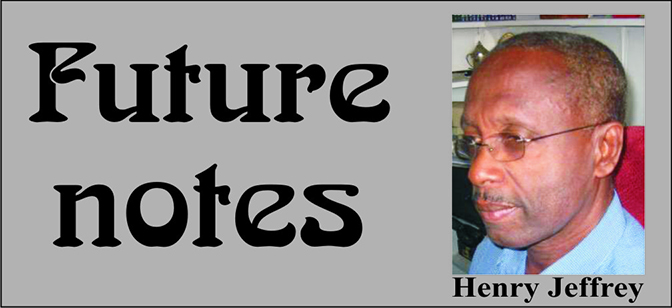‘Men make their own history, but they do not make it as they please; they do not make it under self-selected circumstances, but under circumstances existing already, given and transmitted from the past. The tradition of all dead generations weighs like a nightmare on the brains of the living.’ Karl Marx

Political parties have been and are at the centre of this destructive Guyanese drama; thus we must concern ourselves with the nature and operation of these organisations. Having their origins in about eighteenth century Britain, political parties now exist worldwide and are indispensable to the political process. Parties exist within constitutional frameworks and although we are accustomed to living in a majoritarian liberal democratic order which holds that democracy is better where the will of majority is sovereign, when that majority is stable this makes no sense for it tends towards the tyranny of the majority. Thus, other democratic approaches – consensual, deliberative and egalitarian – exist and the consensual principle of democracy being espoused here is in several ways the opposite to majoritarianism for it emphasizes that we should encourage and where necessary mandate at all levels of government political institutions that include as many political perspectives as possible.
Particularly in poor countries such as ours, political parties have been variously identified as hives of political, organisational and financial corruption. Manifesto promises mean little; their financial arrangements are as opaque as anything one can find and one only need to be rudimentarily observant to recognise the oligarchic nature of party organisations. The latter becomes worse when they adopt moronic notions such as democratic centralism. It would, therefore, not only be an act of pure folly but it would be outright impossible for us to achieve optimal positive results from our reform efforts if we do not deal with these essentially undemocratic and corrupt political institutions.
The proposal
Political parties shall be freely formed democratic institutions with written statutes and programmes that commit them to a liberal/consensual democracy and, inter alia, have provisions for their names, residence, the rights and duties of members, disciplinary measures, their organization, and the composition and powers of the main organs.
A party shall be free to decide on the admission of new members and all members shall have equal rights. The members’ meeting shall be the main organ of the party and any regional organizations and the leading organs and committees of the party must have at least 3 members who are to be elected at least biannually.
Party organs shall adopt resolutions on the basis of a simple majority vote unless a special majority vote is required, and voting in higher level bodies such as the executive committee shall be secret. Where necessary the nomination procedure for parliamentary candidates shall be governed by clearly stated party statutes and shall be by secret ballot.
Party manifestoes shall contain fundamental and secondary commitments and any 12 members of the party shall have the right to demand that the party adequately explain in writing and in public why it cannot fulfill any one or all of its fundamental commitments.
A party shall establish independent arbitration tribunals to settle disputes between it and party groups and individual members, including those having to do with its fundamental commitments. The members of these tribunals shall be independent, not bound by any instructions and be selected by a process agreed upon by the party and the disputant. If agreement on the process of selection is not reached after a period of one month, the party and the disputant will each chose one arbitrator and the two will decide upon a third as the chairperson. The decision of the arbitrators should be given within three months or in such period as decided upon by the arbitrators.
The State shall grant the parties funds to finance their general activities and, with some exceptions, political parties shall be entitled to accept membership fees and donations. The responsible party organ shall make an annual audited public statement accounting for the assets of the party and the origins and the use of funds received from all sources. Should a political party fail to abide by these rules, the members of the relevant leading organs will be liable to prosecution.
Important comments
Our constitution allows for the free formation of political parties committed to democracy, but I believe that to avoid transmogrifications such as democratic centralism, they should be made to commit to the liberal consensual democratic mode of doing politics. Party organisations should be made more accountable for the promises they make as much as for the funds they have collected and it has been long recognised that we need comprehensive party legislation to deal with their organisation, operation and funding.
Primaries and our suggestions for local democracy (SN:03/01/2018) are ways of improving intraparty competition. The PNCR was praised for attempting this but having got the candidate the oligarchy was comfortable with, it abandoned the process, and this indicates quite clearly why party members need some kind of independent process to which the leadership must be answerable. Thus an arbitration process and auditing requirements backed up by the law are suggested. Such requirements are good in themselves, but so far as financing is concerned, will have greater effect if there is a well thought through process of national funding to mitigate the temptation of special interests, and given that the system being proposed is intended to facilitate smaller parties, it could generally broaden the scope of political participation by aiding such parties.
Conclusion
Based on the present electoral arrangement and the vast majority of the suggestions previously proffered, even by myself, constitutional reform to institutionalise genuine national unity government would have subordinated the PNCR and the AFC to the PPP/C in a fashion unacceptable to the coalition members and many of their supporters. In free elections in which the three parties enter separately, the PPP/C is likely to gain the greater plurality with the AFC a distant third. Since coalition between the PPP/C and PNCR is most likely to be of benefit to Guyana, the AFC must choose between being left almost perennially in opposition or decide now to succumb to the PNCR. If they could stay in government by whatever means, both parties win: the PNCR not having to play second fiddle to the PPP/C and the AFC being in government. Of course, unless something is done Guyana will continue to be the loser for the moral and actual cost of what presently exists and what perhaps is being contemplated is far too great. Constitution-making must try to overcome the difficulties on the ground, and that is why the present arrangement based upon a liberal consensual mode of doing politics seeks to give no inordinate advantage to any political party.






